LEONARDO CANADA
BY JOETEY ATTARIWALA
LEONARDO CANADA
Ready for Canada’s FAcT Program
CDR asked Aviation Editor, Joetey Attariwala, to take an up-close look at what Leonardo has to offer for the future training of RCAF pilots. Here is our report.
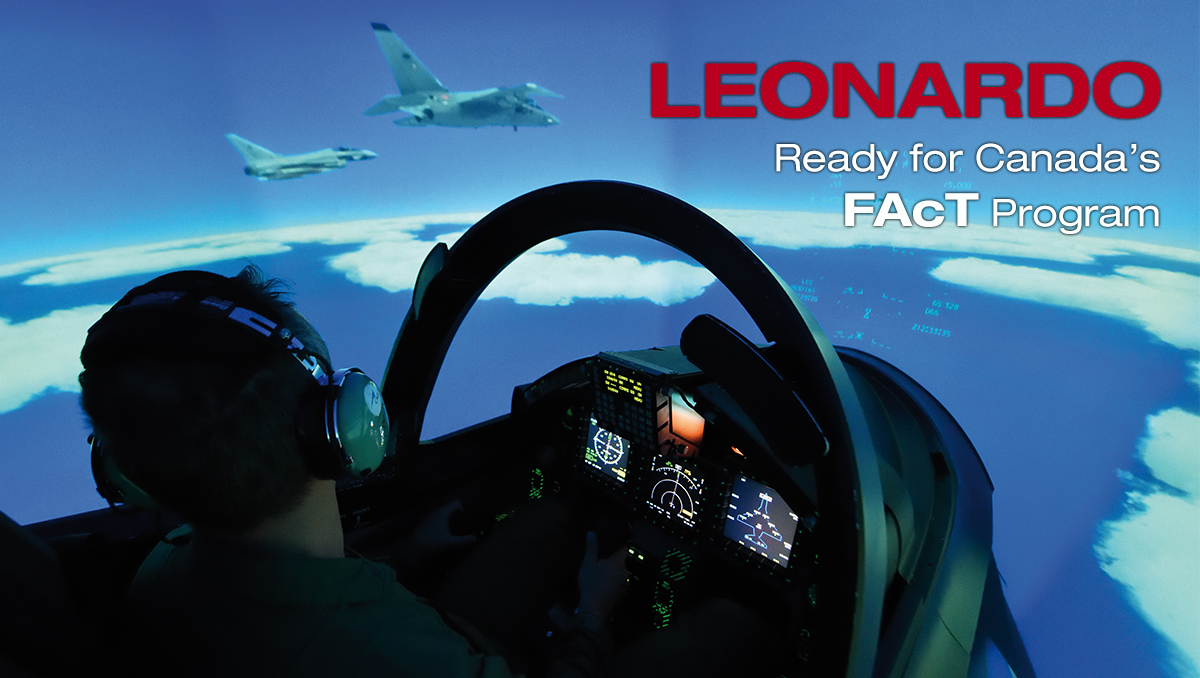 Leonardo is arguably one of the premier multi-national aerospace and defence OEMs in the world. The company’s portfolio of fixed-wing aircraft includes the M-345 Tutor II and M-346 advanced trainers, and a significant stake in the Eurofighter Typhoon consortium. It is also involved in a joint venture that builds the ATR regional airliner. Leonardo also has an extensive footprint as a helicopter OEM with a portfolio of aircraft that includes the AW109, AW119, AW139, AW149, AW159 and AW101 (the parent model of Canada’s CH-149 Cormorant Search and Rescue (SAR) helicopter).
Leonardo is arguably one of the premier multi-national aerospace and defence OEMs in the world. The company’s portfolio of fixed-wing aircraft includes the M-345 Tutor II and M-346 advanced trainers, and a significant stake in the Eurofighter Typhoon consortium. It is also involved in a joint venture that builds the ATR regional airliner. Leonardo also has an extensive footprint as a helicopter OEM with a portfolio of aircraft that includes the AW109, AW119, AW139, AW149, AW159 and AW101 (the parent model of Canada’s CH-149 Cormorant Search and Rescue (SAR) helicopter).
Therefore, it’s no surprise that because of these diverse platforms Leonardo has become a global leader in providing modern and comprehensive training and simulation solutions for military and commercial customers alike.
Leonardo is a pre-qualified supplier for Canada’s Future Aircrew Training (FAcT) program, which seeks to upgrade aircrew training services to help maintain a multi-purpose and combat capable air force. The program will include delivery of pilot training, as well as aircrew training for Air Combat Systems Officers (ACSO) and Airborne Electronic Sensor Operators (AES Ops).
According to PSPC (Public Services and Procurement Canada), FAcT is a comprehensive aircrew training program that will provide aircraft, simulators, civilian instructors and classroom training systems, as well as other essential services, such as aircraft and airfield maintenance, accommodation, and food services. The new procurement will ultimately result in a contract covering all the requirements, including maintenance and infrastructure services. The FAcT contract is expected to cover at least 20 years.
Drawing on more than 70 years of aircrew training experience from around the world, Leonardo is recognized as a leading provider of military fixed-wing, rotary-wing and mission training services but the company’s training philosophy is centered around an optimal balance of real aircraft and appropriate simulation to reduce costs without compromising quality and safety.
As a full-service provider, Leonardo’s approach to training services is based principally on proprietary Leonardo products and it is here where Leonardo is unique among the qualified suppliers, as it boasts both training aircraft and helicopters within its portfolio of products. Of particular note for the FAcT program are the M-345 Tutor II, the AW119 (also known as the TH-119) and the AW109 Trekker platforms.
Leonardo’s integrated military training system is developed around advanced trainers which effectively transition student pilots to the latest and next generation fighter aircraft. The capability of these trainers is enhanced with operational Live, Virtual, Constructive (LVC) technology, which is a proven, non-developmental solution which already forms the backbone of training for Italian, Israeli, Polish and Singaporean Air Forces in developing their next generation fighter pilots. Leonardo’s advanced integrated training solutions also include a complete Ground Based Training System (GBTS) with simulators and instructional devices, and aircraft availability-based logistic services.

OPERATING IN CANADA FOR 50 YEARS
Leonardo has been present in Canada for over 50 years. Today, Leonardo Canada is headquartered in Ottawa with manufacturing facilities in Ottawa and Halifax. The company coordinates all commercial activities in the country through its Ottawa-based team, including those activities related to defence and defence systems, aeronautics programs for Air Traffic Control, and automation with a focus on solutions for airports, postal operators and couriers. In all, the company has approximately 500 employees spread across Canada.
From an aerospace perspective, there are 50 civil, military and para-public helicopters flying alongside 40 ATR aircraft, with five authorized helicopter service centers around the country. One of the company’s primary mandates in Canada is the manufacturing of horizontal and vertical stabilizers for the Airbus A220 program (formerly the Bombardier C Series). Leonardo is also a key provider of maintenance and logistics for the RCAF’s CH-149 Cormorant, manufactured by Leonardo
Francesco Norante is Head of Leonardo Canada and leads the company’s commercial activities across all businesses in the country. For this report, he told CDR that the company has focused its attention on Canada as a key market, “Leonardo Canada was created in 2018 ensure enhanced co-ordination of commercial activities in Canada. We are engaged in numerous sectors, aerospace is one, but we also have significant capability in satellites, radars, and critical infrastructure. We had five divisions operating on their own across the country, but those are now under one umbrella and include Leonardo DRS and Leonardo Canada - Electronics [formerly Tactical Technologies Inc.].”
LEONARDO IS FAcT READY
He added, “That ability is based on the fact that Leonardo builds all the platforms that need to be involved in this program, and we are also able to integrate technologies that are not part of Leonardo, so we are quite flexible and open. The capability comes through continuous innovation because Leonardo invests 11% of its annual global revenue towards research and development — that is over €1.5 billion every year in R&D. It’s a significant amount of money which keeps us at the cutting edge of technology, and it’s that expertise and know-how across all of our business units which we will bring to our solution for the FAcT program.”
As a fixed and rotary wing platform OEM, Leonardo is also open to providing its aircraft as solutions for other qualified bidders for the FAcT program. “We believe in our platforms, so we have not restricted our divisions from pursuing opportunities with the other qualified suppliers. We have created a separation which has allowed Leonardo through distinct, dedicated teams, to explore all opportunities for the platforms,” Norante explained
“Obviously, as a prime contractor we can offer much more than just the platforms — we can offer additional services and tailor our solution across the Leonardo network which individual divisions are not able to offer,” he said.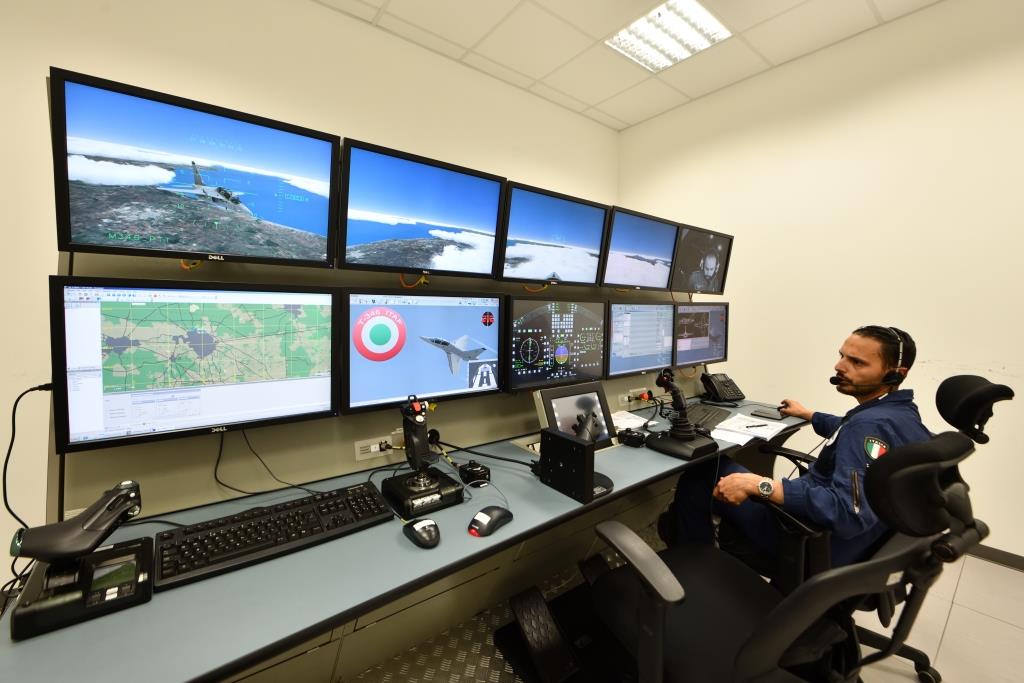
LEVERAGING TECHNOLOGIES LIKE AI
According to Leonardo, the company is leveraging emerging technologies in areas such as Artificial Intelligence, digital technology, advanced manufacturing superclusters and hybrid propulsion. Key Industrial Capabilities include other emerging technologies like advanced materials, cyber resilience, remotely piloted systems and autonomous technologies, and space systems.
Leonardo’s presence in Canada already spans the nation. In February 2020, Leonardo, through its German subsidiary Leonardo Germany GmbH, announced successful results of the official ‘Mid-Project Status Report’ for the Canadian Weather Radar Replacement Project which was published by Environment and Climate Change Canada (ECCC). The Mid-Project Status Report summarizes the verification between project execution and scheduled targets by the end of each year under review. According to the Report, the project execution is fully in line with the scheduled time and cost frames.
Awarded to Leonardo in 2016, the Canadian Weather Radar Replacement Project comprises the design, manufacture, supply, installation, commissioning and training, as well as maintenance and technical support during the warranty phase for 20 Klystron S-Band weather radars – plus 13 additional radars in options. It also includes infrastructure for existing and new radar sites running from Holyrood on the East Coast to Vancouver Island on the West Coast. Twelve of the 13 weather radars originally in options have already been placed as orders by the ECCC.
“All radars were installed and put into operation in accordance with the plan. Additional requirements for safety and increase in performance that had been set by ECCC during the design phase were also successfully implemented by Leonardo,” said Norante. “Training and documentation were delivered, and maintenance work was performed as scheduled, and the cost-management proceeded within the frame of the agreed budget.”
Prior to the report, Leonardo’s performance had been objectively assessed and evaluated according to the ECCC’s vendor performance evaluation system. In the overall rating, Leonardo achieved a score of 83 out of 100 possible points, one of the highest scores ever awarded in any Public Works and Government Services Canada contract up to now.
EXCELLENCE IN CONTRACT EXECUTION
“The positive overall results underpin Leonardo’s strengths and excellence in contract execution,” said Norante. “The Canadian Weather Radar Replacement Project is one of the largest and — especially in terms of technological complexity, infrastructure and environmental requirements — one of the most demanding projects ever awarded to the weather radar industry. It’s an example of excellence in large project management and execution which is exactly what we will bring to our FAcT solution.”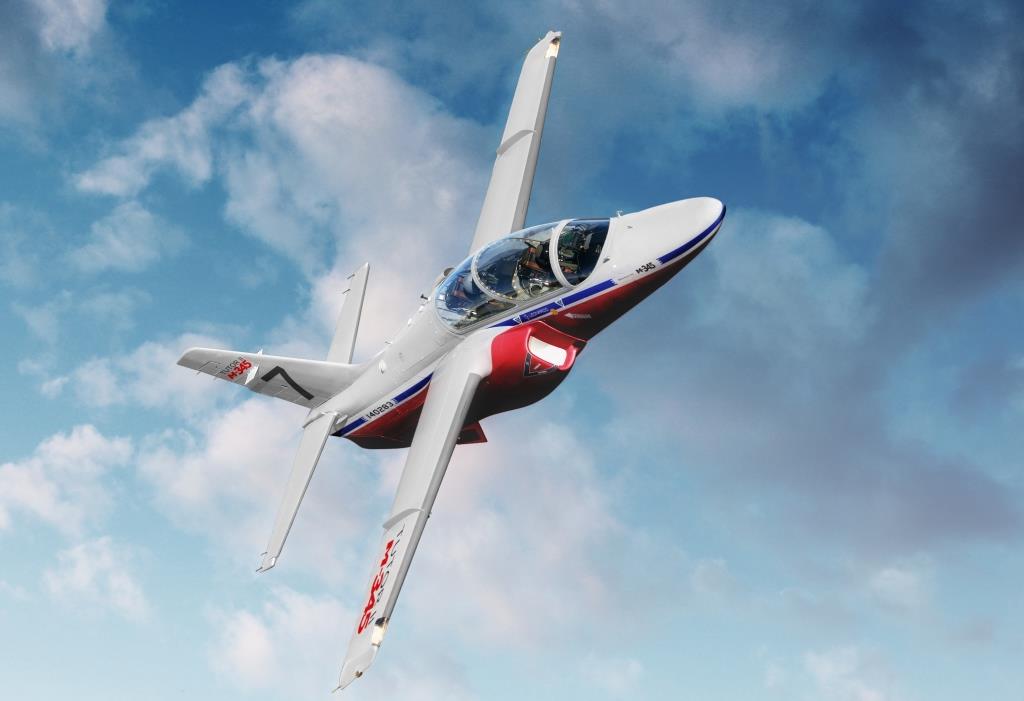
Modern air forces the world over, Canada included, are redesigning their training systems for a number of reasons. Key among them is the understanding that pilot training must become more efficient and cost-effective. In addition to basic airmanship skills, student pilots must also learn to operate advanced systems that are becoming ubiquitous in modern military aircraft. In a grander context, operational scenarios have also evolved — pilots today are presented with incredible amounts of information, which means situational awareness and appropriate systems management, particularly in denied environments, is more important than ever. These skills are honed over many years, but it begins with training where pilots develop foundational knowledge to manage complex operational scenarios.
Moreover, this is precisely where Leonardo has grown its position as a market leader in training pilots destined for current and future generation aircraft. “The fundamental parameter to manage in today’s training is the optimal balance of real aircraft and appropriate linked simulation, that reduces costs without compromising quality,” Emanuele Merlo, Senior Vice President of Trainers at Leonardo’s Aircraft Division, told CDR.
Through its advanced integrated training solutions, consisting of training aircraft like the M-345 Tutor II and M-346, a complete Ground Based Training System (GBTS) and aircraft availability based logistic services, a robust training system can smoothly transition pilots fresh from primary trainers to next generation fighters. The company’s Embedded Tactical Training Simulation (ETTS) allows its aircraft to emulate on-board sensors and an impressive range of weapons, along with the latest generation human-machine interface (including Helmet Mounted Display), so student pilots can interact with a training aircraft that is fully representative of a proper fighter aircraft.
M-345 HAS NOW ENTERED SERVICE WITH
THE ITALIAN AIR FORCE
The GBTS comprises simulators, interactive courseware, mission planning systems and a computer-based training management system. Higher-end training can see connectivity between in-flight aircraft with Full Mission Simulators on the ground, along with Computer Generated Forces (CGF) — this allows student pilots to interact in real time with a virtual scenario, the so-called LVC capability.
The smaller, but equally advanced M-345 Tutor II, is a new generation jet trainer. Aimed at the basic to advanced phases of the pilot training syllabus, the M-345 offers high efficiency with a low acquisition and operating cost that is comparable to high-powered turboprop trainers. The M-345 can fully benefit from the training system centered on its ‘big brother’ M-346, including the extensive ETTS and the LVC capability.
The M-345 has now entered into service with its first customer, the Italian Air Force (ITAF), joining the M-346s at 61st Wing’s base in Galatina (Lecce), in Southern Italy where it is designated the T-345A — it will progressively replace both the T-339A used for Phase II training, and the T-339C that is used for Phase III training.
Leonardo has training centers all over the world, with proprietary sites in Italy, the UK, USA, and Malaysia, and authorized centers elsewhere in the world. Leonardo’s military training systems are in service today with the air forces of Italy, the Republic of Singapore, Israel and Poland, and are already graduating pilots destined for next generation fighters.
Leonardo’s leadership in delivering proven integrated training solutions saw the creation of the International Flight Training School (IFTS) in 2018, in partnership with the Italian Air Force. IFTS offers bespoke teaching modules to international partner nations according to the syllabus of the incoming Air Force. For example, IFTS basic training is tailored to the student pilot where their desired exit level can be accommodated, thereby decreasing the need for further expensive flight hours from an Operational Conversion Unit (OCU), saving time and valuable resources. The synergy between aircraft, instructors and simulation created through IFTS is unique and allows the exploration of new areas of training. The training center is equipped with LVC technology including the advanced M-346 simulators, enabling trainees on the ground to interact with pilots in the air. IFTS has already graduated students who have transitioned to 4th and 5th Generation fighters like the Eurofighter Typhoon and the F-35.
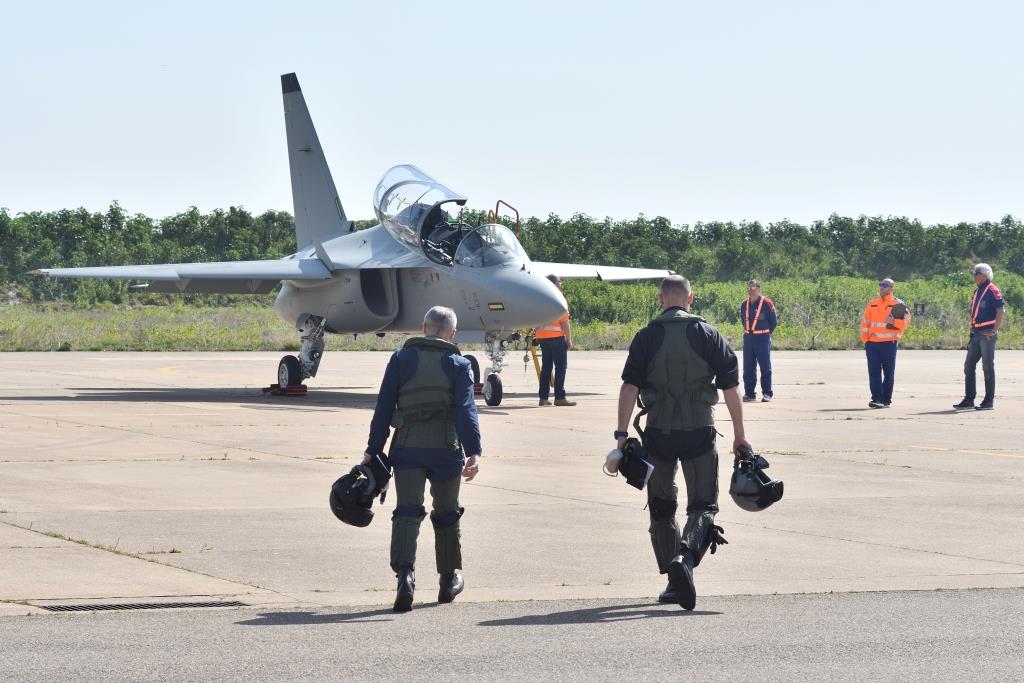
WINNING US NAVY TRAINING CONTRACT
Merlo added, “LVC exposes the future pilot to the most complex operational scenarios at the lowest costs, and is today the element that draws a separating line between the future and the current generation training systems. IFTS is currently the only Military-Industry driven training service environment operating a modern training system, which includes fully-operational LVC technology. For this reason, our point of view is IFTS is clear evidence that Leonardo can offer the only proven, non-developmental training solution which can deliver to the customer immediately the most robust and advanced training for its pilots destined to current and future generation fighter aircraft.”
However, beyond fixed wing, Leonardo also happens to be an expert in developing rotary wing pilots. In January this year, Leonardo was awarded a major contract for the production and delivery of the U.S. Navy’s Advanced Helicopter Training System. The contract calls for 32 TH-73A helicopters (a variant of the single-engine AW119 helicopter), initial spares, support and dedicated equipment, and specific pilot and maintenance training services. On 13 November, Leonardo welcomed the announcement from DoD that it was being awarded a $171 million USD modification to the previously awarded firm-fixed-price contract which exercises options for the production and delivery of an additional 36 TH-73A aircraft. This work is expected to be completed by December 2022.
With its Genesys Aerosystems glass cockpit, the AW119 IFR is a full-spectrum training aircraft, meeting all full basic and advanced helicopter flight training in a cost-effective single engine for modern air forces. Two students and the instructor can fly simultaneously, utilizing the center observer seat for a fly-observe and observe-fly practice. This reinforces learning through observation and repetition, squeezing more out of each instructional hour, speeding up learning and potentially freeing flight hours for advanced training.
Leonardo’s Norante talked to CDR about the significance of the USN Advanced Helicopter Training System contract, “This was the first time Leonardo was awarded a DoD contract for helicopters as a prime contractor. There is no doubt in my mind that Canada could benefit from the economies of scale if the AW119, or the TH-73A as it’s known in the U.S., is selected as part of the FAcT solution.”
When it comes to aircrew training for Air Combat Systems Officers (ACSO) and Airborne Electronic Sensor Operators (AES Ops), Leonardo will apply its expertise in mission management and sensor technology to deliver high performance integrated solutions for the management of Intelligence, Surveillance, and Reconnaissance (ISR) and Intelligence, Surveillance, Target Acquisition, and Reconnaissance (ISTAR) missions in manned and unmanned systems. “Our aim is to provide flexible and modular solutions, platform agnostic, to be reconfigured according to the evolving needs of our customers in order to ensure mission success,” said Norante.
OFFERING THE ATR 72-600 FOR TRAINING
At CFB Winnipeg, Leonardo would provide the ATR72-600 multi-engine aircraft to execute ISR training missions. Each aircraft can be configured with consoles to train up to four students at a time. These consoles are based on the ATOS (Airborne Tactical Observation and Surveillance) system, which is an advanced Airborne Mission System that integrates and manages various sensors and sub-systems in order to perform surveillance missions. The suite of Mission Sensors and other Mission Equipment will be tailored to meet the specific operational needs of the RCAF, and can include both real and simulated sensors and equipment. Leonardo will also provide GBTS to replicate real missions and simulate different scenarios. This includes Computer Based Training and Briefing / De-briefing simulators.
“Our Integrated Training Systems deliver solutions that can guarantee the highest quality standard at every training stage for pilots, rear crews, ground crews, operators, maintainers and mission commanders,” explained Norante. “Training is designed so that acquired skills can be effectively transferred to operational improvement.”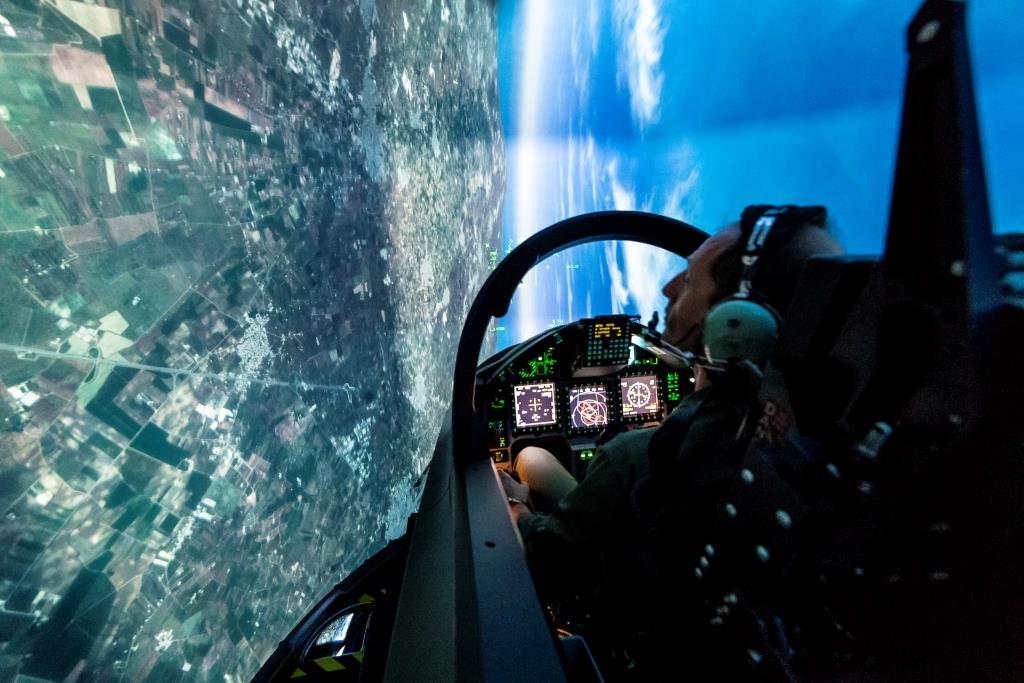
Leonardo also has significant experience in designing and building dedicated infrastructure to deliver its fully integrated training solutions. “Our experience with IFTS or with the U.S. Navy helicopter training program proves that we have the capacity to design for the scope, or the ability to upgrade existing infrastructure, while also taking into consideration the peculiarities of the local environment such that the facilities are fully integrated with the necessary training devices and equipment,” said Norante.
In 2018 Leonardo Canada nearly doubled its investment within Canada from $200 million to $400 million, and that pace of investment continued to nearly half a billion in 2019.
OPPORTUNITIES FOR CANADIAN COMPANIES
“Our industrial partnerships support the long-term sustainability and growth of Canada’s aerospace suppliers, service companies and small and medium size businesses, including export opportunities. We have had positive experiences on building partnerships in Canada in the past and we are now back in discussion with several industrial and business entities, related to training devices, management, operations, integration and life-cycle-support for the new Integrated Training System, prospecting long-term opportunities for any Canadian company involved in the program,” said Norante.
“In addition to that, we are identifying key technologies that can be developed with Canadian industry through research and development in Canada; and we are increasing our industrial cooperation, investment and long-term partnerships to under-represented groups such as women, indigenous, ethnic, disadvantaged groups and communities.”
Norante said, “We are strongly committed to the long-term success of Canada’s world-class aerospace industry and we are determined to provide the Royal Canadian Air Force with the most innovative, capable and best value solution for the FAcT program. We are focused on developing ITB [Industrial and Technological Benefits]/IBP [Indigenous Benefit Plan] partnership programs with Canadian companies; and because Leonardo’s systems are used worldwide, several Canadian sustainment providers have already taken advantage of export opportunities through the provision of similar services to customers around the world.”
WORKING WITH PRATT & WHITNEY CANADA
Norante added, “For example, we have a strong affiliation with Pratt & Whitney Canada as its engines power most of our rotary wing training platforms and the ATR aircraft. Our commitment is focused on contributing to the achievement of four of the Sustainable Development Goals promoted by the UN 2030 Agenda which includes education; decent work and economic growth; industry, innovation and infrastructure; and climate action. We are also committed to meaningful engagement with indigenous businesses and people. All of the bidders are required to include a plan for meaningful employment, sub-contracting, training, skills development and apprenticeship program opportunities for indigenous businesses and people throughout the duration of the FAcT contract.”
Leonardo has an excellent record delivering economic benefits in Canada including the introduction of new technology and expertise. The company has strong partnerships with several of Canada’s leading aerospace and defence companies such as Northstar Earth & Space and IMP. Leonardo also has a joint venture with CAE called Rotorsim that provides Full Flight Simulators for training helicopter pilots at training academies in the USA, Italy and UK.
Modern military flight training is best achieved with a comprehensive integrated training system that is representative of modern platforms and systems and Leonardo has demonstrated the ability to deliver robust training solutions through its involvement on major international training programs that it is delivering today. This expertise forms the foundation on which Leonardo is set to deliver for Canada’s FAcT program, should it be selected.
Joetey Attariwala is CDR’s Senior Staff Writer & Aviation Editor

